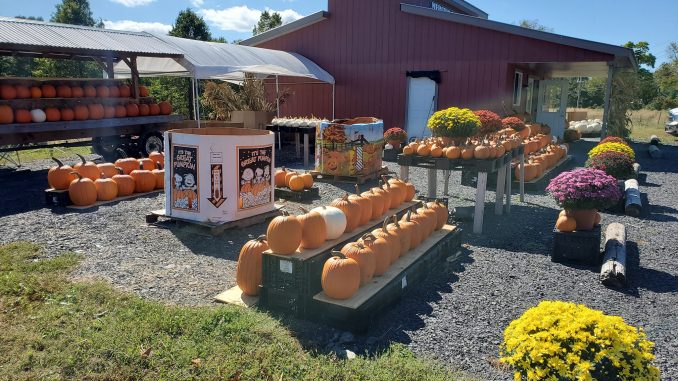
Local farms are thriving among the COVID-19 quarantine, according to New Paltz farm owners.
Since farms are considered essential businesses, they are able to continue operating under social distancing procedures. However, many farms across the country are now experiencing an excess of crops and have even had to dump rotten produce: This is not the case for many farms in the Hudson Valley.
Eric James of Jenkins-Lueken Orchards has actually noticed an increase in customers since quarantine began.
“People seem to be purchasing a lot of items instead of just coming in for one or two,” James said. “Most of our customers just don’t want to go to the bigger stores — they feel safer going to the smaller ones.”
Christopher Mercier of Mercier Farms has also noticed an uptick in business.
“Farms are considered critical infrastructure and we are food producers,” Mercier said. “People are telling me they’d rather go to a farm stand than a supermarket during this outbreak.”
Due to an increase in demand, local farms have increased their hours and merchandise selection, in addition to adding curbside pickup options for those who do not feel comfortable entering the shops.
Jenkins-Lueken Orchards is now offering rice, flour, pasta and sugar — staple items not commonly found in their inventory – to match demand from the community. Mercier Farms has increased their stock of flower and vegetable plants by 500%.
With demand for smaller stores and farm stands increasing, local farms have been working hard to meet these demands, and reflect them in their inventory.
“We have noticed a major increase in demand since mid-March,” said Becky Fullam of Old Ford Farm. “For the most part we’ve been able to keep up with demand, but in order to increase production in meat we need to plan months in advance. This is because we are a small pasture-based operation, so animals are raised and processed on a seasonal basis. Thus, we will run out of certain cuts of meat.”
Though the elevation of customers to local farms has been generally positive for owners, many find themselves worried about what may happen if the quarantine extends into the summer months, or even the fall.
Strawberry U-pick operations — which allow customers to harvest their own strawberries — are a big source of income for many farms in the summer, and the fall season brings an even larger income with apple and pumpkin picking.
James stressed that, during this time, it’s important to continue to support local businesses.
“If this increased demand from consumers could be counted on in the long term, many farms like ours could sprout up and thrive,” Fullam said. “We hope that this could be one positive outcome from this whole terrible situation.”

